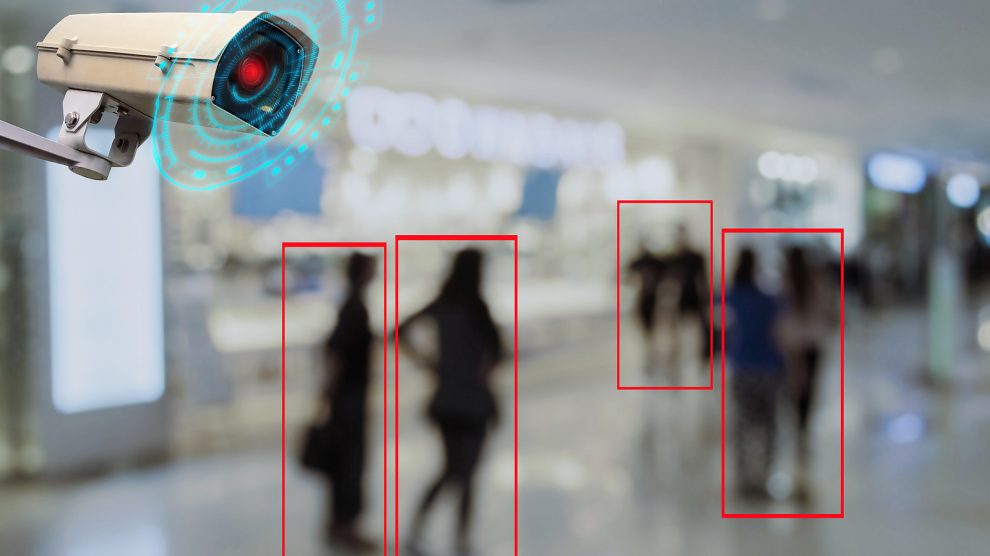Estonian start-up Fyma secures 1.4 million euros to turn CCTV cameras into AI-powered motion analytics sensors.
Estonian computer vision start-up Fyma (formerly known as Visory), has announced the closure of a 1.8 million US dollars (1.4 million euros) seed round led by Change Ventures. Other investors including 7 Percent, Decacorn, Lemonade Stand, Tiny VC, existing investor Superangel, and a number of angel investors — including two former TransferWise executives – also participated in the round.
The new funding brings the total raised by Fyma to date to 1.7 million euros.
Unused data
Founded in 2019, Fyma’s mission is to enable businesses and institutions to make better strategic decisions by turning conventional cameras into sensors. The company’s SaaS (software as a service) platform analyses data from live video feeds, enabling clients to understand and contextualise patterns of movement in individuals such as pedestrians and shoppers. The software can also be used with objects such as vehicles and machinery.
According to a report from analytics firm IHS Markit, there are around 770 million CCTV cameras in the world today and this number is set to exceed one billion in 2021. But most of these are used strictly for surveillance purposes, and much of the data goes unused.
This is where Fyma comes in. Its cognitive AI-based approach can produce meaningful and useful insights from previously untapped data sources.
“AI is at the core of us being able to turn terabytes of data into actionable insights,” explains Fyma co-founder and CEO Karen K. Burns. “We’re aiming to demystify this complex technology and unlock value currently hidden within existing video footage. We’re making these insights easily accessible to decision makers in areas ranging from urban planning and commercial real estate to transportation and retail through a self on-boarding SaaS platform.”
Built on AI
In addition to all the insight that can be gained from analysing video in this way, companies who choose Fyma can also save money, the start-up claims. Because it’s built on AI and algorithms, it can turn any new or legacy camera into powerful sensors. Working on an integrated system of cameras and computer vision algorithms, the Fyma system requires less processing power and infrastructure investment when compared to installing high-end speciality cameras and sensors.
“We simply turn them [cameras] into powerful sensors, says Ms Burns. “This also means setting up is easy and during Covid when companies weren’t in offices, or couldn’t send installation teams out, we weren’t affected as we are a software-only solution.”
And according to Taavi Tammiste, co-founder and CTO at the company, because the solution is a self-learning application, there are additional benefits for users.
“This removes the burden of manually inputting hundreds or thousands of business rules or variables and significantly reduces onboarding times for clients. And as any camera can join our platform and become a sensor on existing infrastructure, the solution is much more scalable and cost effective,” he explains.
Privacy concerns
Another key difference between Fyma and other motion analytics solutions is that the solution doesn’t require a specialised team to operate it.
Investors have been impressed.
“We value the vision of Fyma creating a platform that any business person can understand, as simplicity will be a key deciding factor for corporate clients seeking to improve their businesses with data,” says Rait Ojasaar, partner at Change Ventures.
In recent times, the issue of privacy protection in surveillance and analytics systems has been widely discussed. Ms Burns tells Emerging Europe that Fyma has worked with a special legal team to make sure it is GDPR compliant.
“Videos are downsampled before they reach us and we don’t do face recognition. We also don’t save any video feeds, just the metadata that the AI gathers,” Ms Burn says.
Right now, the company is running a number of pilot tests and developing different use cases for its technology across multiple industries. A pilot with a shopping centre in the Baltics is currently helping to understand the impact of Covid-19 restrictions on footfall and how to make better use of common areas. Fyma is also working with Tallinn’s Ülemiste City, the city’s business park, to optimise the operation of parking lots.
Now, during the times of Covid-19 and its related restrictions, the start-up’s tech could be used to monitor how people adhere to distancing measures.
“We classify objects (person, car, bus, truck, etc.) and count them, look at their trajectories, proximity to other objects (so a bicycle to a bus for example, or a person to a person) to map Covid social distancing adherence, dwell time and more variables,” Ms Burns explains.
With the new funding, Fyma plans to double its headcount, fund additional pilot programmes, and focus on business development.
According to data from Market and Market, the global AI computer vision market is expected to reach 20.6 billion euros by 2023, which the company considers as indicating significant room for growth for start-ups who operate in this space.
—
Unlike many news and information platforms, Emerging Europe is free to read, and always will be. There is no paywall here. We are independent, not affiliated with nor representing any political party or business organisation. We want the very best for emerging Europe, nothing more, nothing less. Your support will help us continue to spread the word about this amazing region.
You can contribute here. Thank you.



